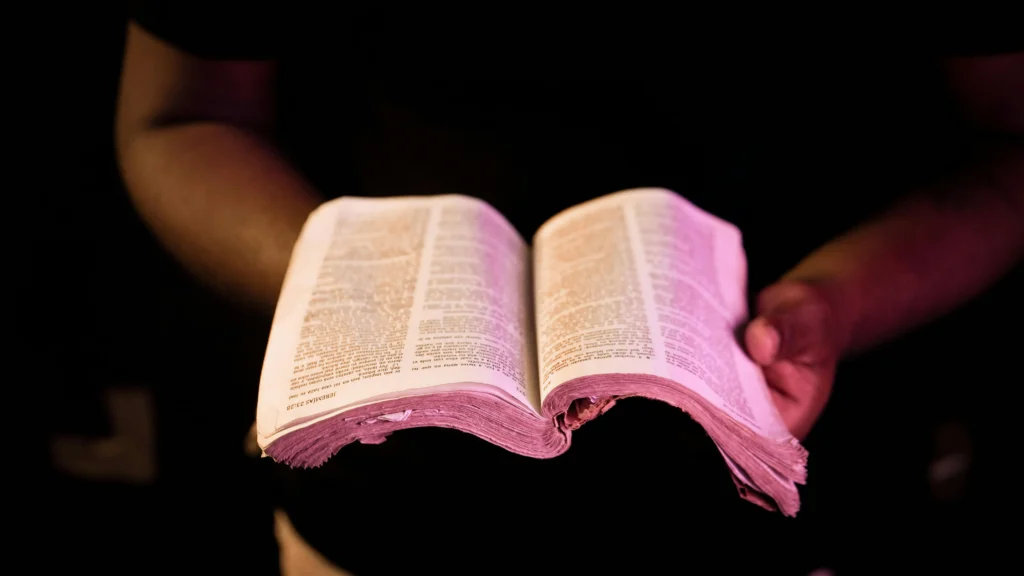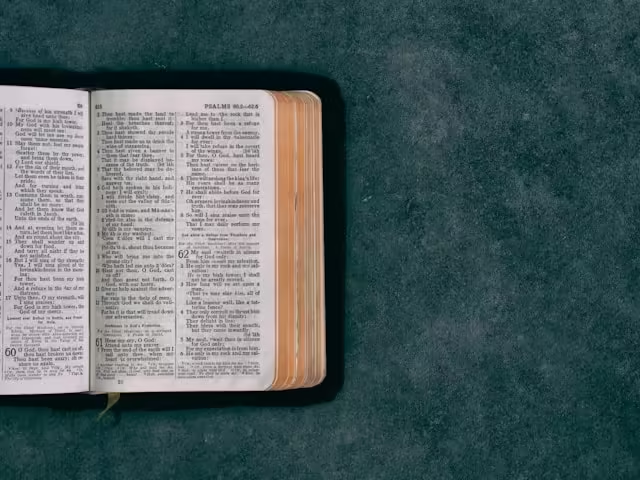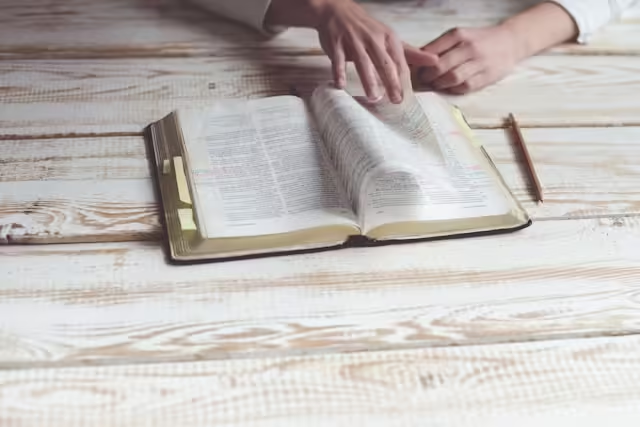Book Of Nehemiah Quiz

Test your knowledge of the Book of Nehemiah with our comprehensive quiz. Explore key events, characters, and verses from the first book of the Bible. Perfect for Bible study groups, competitions, or personal growth. Challenge yourself today!
Who was the Persian king during Nehemiah’s time?
- Answer: Artaxerxes
- Verse: Nehemiah 1:1 – “The words of Nehemiah son of Hacaliah: In the month of Kislev in the twentieth year, while I was in the citadel of Susa.”
What was Nehemiah’s role before he went to Jerusalem?
- Answer: He was a cupbearer to the king
- Verse: Nehemiah 1:11 – “Lord, let your ear be attentive to the prayer of this your servant and to the prayer of your servants who delight in revering your name. Give your servant success today by granting him favor in the presence of this man. I was cupbearer to the king.”
What troubled Nehemiah when he first heard about the condition of Jerusalem?
- Answer: The walls of Jerusalem were broken down and its gates were burned with fire
- Verse: Nehemiah 1:3 – “They said to me, ‘Those who survived the exile and are back in the province are in great trouble and disgrace. The wall of Jerusalem is broken down, and its gates have been burned with fire.'”
What was Nehemiah’s immediate reaction to the news about Jerusalem?
- Answer: He wept, mourned, and prayed
- Verse: Nehemiah 1:4 – “When I heard these things, I sat down and wept. For some days I mourned and fasted and prayed before the God of heaven.”
How did Nehemiah gain permission to go to Jerusalem?
- Answer: He prayed and then requested permission from King Artaxerxes
- Verse: Nehemiah 2:4 – “The king said to me, ‘What is it you want?’ Then I prayed to the God of heaven, and I answered the king.”
What did Nehemiah ask the king for in addition to permission to go to Jerusalem?
- Answer: He asked for letters to ensure safe passage and timber for the walls and gates
- Verse: Nehemiah 2:7-8 – “I also said to him, ‘If it pleases the king, may I have letters to the governors of Trans-Euphrates, so that they will provide me safe conduct until I arrive in Judah? And may I have a letter to Asaph, keeper of the royal park, so he will give me timber to make beams for the gates of the citadel by the temple and for the city wall and for the residence I will occupy?’ And because the gracious hand of my God was on me, the king granted my requests.”
How did Nehemiah survey the walls of Jerusalem upon his arrival?
- Answer: He went out at night and inspected the walls secretly
- Verse: Nehemiah 2:13 – “By night I went out through the Valley Gate toward the Jackal Well and the Dung Gate, examining the walls of Jerusalem, which had been broken down, and its gates, which had been destroyed by fire.”
What did Nehemiah do when he first arrived in Jerusalem?
- Answer: He did not reveal his plans to anyone but made a private inspection of the walls
- Verse: Nehemiah 2:16 – “The officials did not know where I had gone or what I was doing, because as yet I had said nothing to the Jews or the priests or nobles or officials or any others who would be doing the work.”
How did Nehemiah encourage the people to start rebuilding the wall?
- Answer: He inspired them by sharing the good hand of God and the king’s support
- Verse: Nehemiah 2:17 – “Then I said to them, ‘You see the trouble we are in: Jerusalem lies in ruins, and its gates have been burned with fire. Come, let us rebuild the wall of Jerusalem, and we will no longer be in disgrace.'”
What opposition did Nehemiah face while rebuilding the wall?
- Answer: He faced mockery, threats, and attempts to undermine the work
- Verse: Nehemiah 4:1-2 – “When Sanballat heard that we were rebuilding the wall, he became angry and was greatly incensed. He ridiculed the Jews, and in the presence of his associates and the army of Samaria, he said, ‘What are those feeble Jews doing? Will they restore their wall? Will they offer sacrifices? Will they finish in a day? Can they bring the stones back to life from those heaps of rubble—burned as they are?'”
What did Nehemiah do when he heard about the people’s complaints of hardship during the reconstruction?
- Answer: He took action to address the injustice and alleviate the burden
- Verse: Nehemiah 5:6-7 – “When I heard their outcry and these charges, I was very angry. I pondered them in my mind and then accused the nobles and officials. I told them, ‘You are charging your own people interest!’ So I called together a large meeting to deal with them.”
What reforms did Nehemiah implement to correct the economic injustices?
- Answer: He demanded that the nobles and officials return the property and cancel the debts
- Verse: Nehemiah 5:11 – “Give back to them immediately their fields, vineyards, olive groves and houses, and also the interest you are charging them—one percent of the money, grain, new wine and olive oil.”
How did Nehemiah deal with the opposition from Sanballat and Tobiah?
- Answer: He prayed and set a guard to protect the workers
- Verse: Nehemiah 4:9 – “But we prayed to our God and posted a guard day and night to meet this threat.”
What did Nehemiah do when he was invited to meet with his enemies?
- Answer: He refused to meet with them, knowing they intended to harm him
- Verse: Nehemiah 6:2 – “Sanballat and Geshem sent me this message: ‘Come, let us meet together in one of the villages on the plain of Ono.’ But they were scheming to harm me.”
What was the purpose of the assemblies Nehemiah organized during the rebuilding process?
- Answer: To read the Law of Moses and renew the covenant with God
- Verse: Nehemiah 8:1 – “All the people came together as one in the square before the Water Gate. They told Ezra the scribe to bring out the Book of the Law of Moses, which the Lord had commanded for Israel.”
How did the people react to the reading of the Law by Ezra?
- Answer: They wept and mourned but were later encouraged to rejoice
- Verse: Nehemiah 8:9 – “Then Nehemiah the governor, Ezra the priest and teacher of the Law, and the Levites who were instructing the people said to them all, ‘This day is sacred to the Lord your God. Do not mourn or weep.’ For all the people had been weeping as they listened to the words of the Law.”
What was the purpose of the feast of Tabernacles that Nehemiah reinstituted?
- Answer: To celebrate and rejoice in the harvest and God’s provision
- Verse: Nehemiah 8:14-15 – “They found written in the Law, which the Lord had commanded through Moses, that the Israelites were to live in temporary shelters during the festival of the seventh month and that they should proclaim this word and spread it throughout their towns and in Jerusalem: ‘Go out into the hill country and bring back branches from olive and wild olive trees, and from myrtles, palms and shade trees, to make temporary shelters’—as it is written.”
What was the significance of the sealing of the covenant in Nehemiah’s time?
- Answer: It was a formal commitment to follow God’s Law and uphold His commandments
- Verse: Nehemiah 9:38 – “In view of all this, we are making a binding agreement, putting it in writing, and our leaders, our Levites and our priests are affixing their seals to it.”
How did Nehemiah address the issue of mixed marriages among the returned exiles?
- Answer: He enforced the covenant requiring separation from foreign spouses
- Verse: Nehemiah 13:23-24 – “Moreover, in those days I saw men of Judah who had married women from Ashdod, Ammon and Moab. Half of their children spoke the language of Ashdod or the language of one of the other peoples and did not know how to speak the language of Judah.”
What did Nehemiah do to purify the temple after his return from visiting the king?
- Answer: He removed the foreign influence and restored proper worship
- Verse: Nehemiah 13:7 – “I came to Jerusalem and learned about the evil thing Eliashib had done in providing Tobiah a room in the courts of the house of God.”
How did Nehemiah deal with the violation of the Sabbath?
- Answer: He rebuked the officials and enforced the Sabbath laws
- Verse: Nehemiah 13:15-17 – “In those days I saw people in Judah treading winepresses on the Sabbath. They were also bringing in grain and loading it on donkeys, together with wine, grapes, figs and all other kinds of loads. And they were bringing all this into Jerusalem on the Sabbath. Therefore I warned them against selling food on that day. Men from Tyre who lived in Jerusalem were bringing in fish and all kinds of merchandise and selling them in Jerusalem on the Sabbath to the people of Judah. I rebuked the nobles of Judah and said to them, ‘What is this wicked thing you are doing—desecrating the Sabbath day?'”
What was Nehemiah’s response when he saw people marrying foreign women again?
- Answer: He confronted the offenders and made them vow to separate from their foreign wives
- Verse: Nehemiah 13:25 – “I rebuked them and called curses down on them. I beat some of the men and pulled out their hair. I made them take an oath in God’s name that they would not give their daughters in marriage to their sons, nor take their daughters in marriage for their sons or for themselves.”
What did Nehemiah do to celebrate the completion of the wall?
- Answer: He held a grand dedication ceremony and gave thanks to God
- Verse: Nehemiah 12:27 – “At the dedication of the wall of Jerusalem, the Levites were sought out from where they lived and were brought to Jerusalem to celebrate joyfully the dedication with songs of thanksgiving and with the music of cymbals, harps and lyres.”
How long did it take to rebuild the wall of Jerusalem?
- Answer: Fifty-two days
- Verse: Nehemiah 6:15 – “So the wall was completed on the twenty-fifth of Elul, in fifty-two days.”
What did Nehemiah do to address the social injustices faced by the poor?
- Answer: He implemented reforms to alleviate the burdens and restore fairness
- Verse: Nehemiah 5:12 – “They said, ‘We will give it back.’ And we will not demand anything more from them. We will do as you say. Then I summoned the priests and made the nobles and officials take an oath to do what they had promised.”
What was the purpose of Nehemiah’s letter to the governors of Trans-Euphrates?
- Answer: To ensure safe passage and support for his mission to Jerusalem
- Verse: Nehemiah 2:7 – “I also said to him, ‘If it pleases the king, may I have letters to the governors of Trans-Euphrates, so that they will provide me safe conduct until I arrive in Judah?'”
Who were Nehemiah’s primary adversaries during the rebuilding of the wall?
- Answer: Sanballat, Tobiah, and Geshem
- Verse: Nehemiah 2:19 – “But when Sanballat the Horonite, Tobiah the Ammonite official and Geshem the Arab heard about it, they mocked and ridiculed us. ‘What is this you are doing?’ they asked. ‘Are you rebelling against the king?'”
What was Nehemiah’s strategy for protecting the workers during the rebuilding of the wall?
- Answer: He posted guards and armed some of the workers
- Verse: Nehemiah 4:16 – “From that day on, half of my men did the work while the other half were equipped with spears, shields, bows and armor. The officers posted themselves behind all the people of Judah.”
How did Nehemiah handle the issue of corruption among the officials?
- Answer: He confronted and corrected the corrupt practices and enforced accountability
- Verse: Nehemiah 5:9 – “So I continued, ‘What you are doing is not right. Shouldn’t you walk in the fear of our God to avoid the reproach of our Gentile enemies?'”
What was the significance of Nehemiah’s personal commitment to God and his people?
- Answer: His dedication and reforms helped restore the spiritual and social integrity of Jerusalem
- Verse: Nehemiah 5:19 – “Remember me with favor, my God, for all I have done for these people.”




